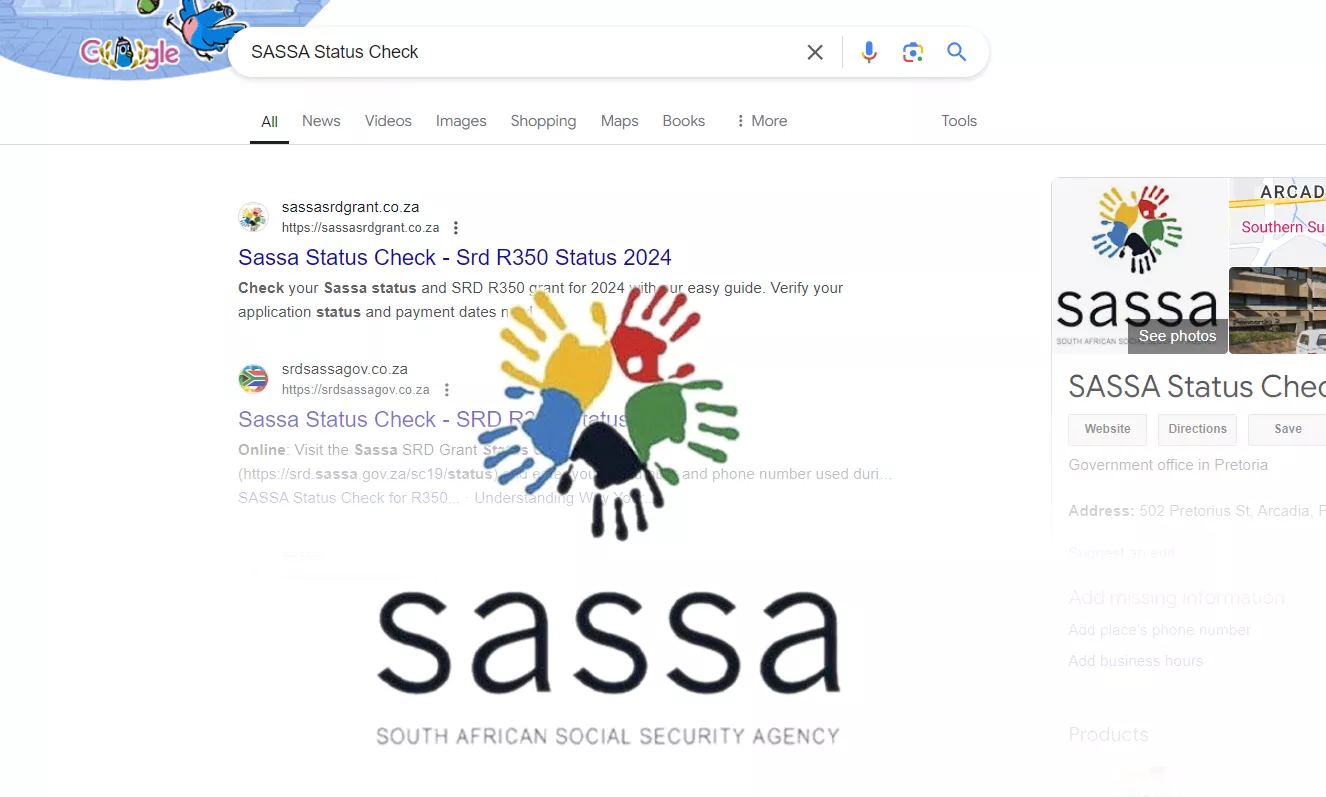A SASSA status check allows South African citizens to check the status of their Social Relief of Distress (SRD) grant application. When people search for “SASSA status check,” or “srd status check” they are typically looking for updates on their SRD R350 grant application status and payment dates. To perform a SASSA status check, users need to enter their South African ID number and phone number into the SASSA status check tool, which provides real-time updates on their grant application status.
When checking their SASSA status, applicants may encounter various statuses such as pending, declined, or approved. A pending status means the application is still under review, while a declined status indicates the application was not approved. An approved status means the application has been accepted, and the applicant can expect to receive their payment on the specified dates. The SASSA status check tools online help applicants stay informed about the progress of their application and any actions they may need to take.
The R350 Social Relief of Distress (SRD) grant is paid out monthly. Recipients receive the grant once per month to help them cover essential expenses during periods of financial hardship. This payment schedule ensures that beneficiaries have a predictable and regular source of support.
The R350 Social Relief of Distress (SRD) grant, when converted to USD, is approximately $23 per month (exchange rates can vary, so this is an estimate based on a rate of 1 USD = 15 ZAR).
This amount is an incredibly small sum for anyone to live on. For context, $23 per month translates to less than $1 a day, which is far below the international poverty line of $1.90 a day as defined by the World Bank. With such a limited amount, individuals would struggle to cover basic necessities such as food, shelter, and healthcare. It underscores the dire financial situations faced by many beneficiaries and highlights the insufficiency of this grant in providing meaningful support to those in need.
Who is Eligible for SASSA Grants?
SASSA grants are designed to support South Africa’s most vulnerable citizens, and the eligibility criteria vary depending on the type of grant. Here’s a breakdown of who can apply for each grant:
- Older Persons Grant is available to South African citizens or permanent residents who are 60 years or older. Applicants must pass a means test, which evaluates their income and assets to determine financial need.
- Disability Grant is for South African citizens or permanent residents aged between 18 and 59 who are medically certified as temporarily or permanently disabled. Applicants must also meet the means test criteria.
- Child Support Grant is intended for primary caregivers of children under 18 years old. Both the caregiver and the child must be South African citizens or permanent residents and must pass a means test to qualify.
- Foster Child Grant is for foster parents with a court order indicating foster care. Both the child and the foster parent must be South African citizens or permanent residents.
- Care Dependency Grant supports parents or primary caregivers of children with severe disabilities who require permanent care. The child must be under 18 years old, and both the caregiver and the child must be South African citizens or permanent residents. A means test is also required.
- War Veterans Grant is for those who served in the Second World War or the Korean War, are 60 years or older, or are disabled. Applicants must be South African citizens or permanent residents and meet the means test criteria.
- Social Relief of Distress (SRD) Grant is aimed at unemployed individuals aged 18 to 60 who are not receiving any other social grant, unemployment insurance, or financial support from the National Student Financial Aid Scheme (NSFAS). Applicants must be South African citizens, permanent residents, asylum seekers, or special permit holders, and their monthly income must not exceed R624.
General Requirements
To qualify for any SASSA grant, applicants must provide valid identification, such as a South African ID card or birth certificate for children. They must also be South African citizens, permanent residents, asylum seekers, or special permit holders. Additionally, applicants must pass a means test, which evaluates their household income and assets to ensure the grants reach those who need them most. Specific grants may have additional requirements, such as age, disability status, or caregiving responsibilities.
These criteria ensure that SASSA grants are provided to individuals and families who genuinely need financial assistance to improve their quality of life.
The True Cost of Living in South Africa and the Inadequacy of SASSA Grants
The cost of living in South Africa varies by region, but basic expenses are high across the board. Renting a one-bedroom apartment in a city center costs between R5,000 and R10,000 ($330 to $660) per month, with slightly lower rents in less central areas. Basic utilities like electricity, water, and garbage disposal typically add around R1,500 ($100) monthly. Food expenses range from R2,000 to R3,500 ($130 to $230) per month, while transportation costs, whether public transport or owning a vehicle, can add another R800 to R2,500 ($53 to $165). Healthcare and other necessities like clothing and communication can add an additional R1,000 to R3,000 ($66 to $200) monthly. All in all, a modest monthly budget for a single person can easily exceed R10,000 ($660), a stark contrast to the R350 ($23) provided by the SRD grant.
The primary goal of SASSA grants is to alleviate poverty and provide some form of safety net for the disadvantaged, but the current grant amounts are far from sufficient. The R350 grant is a fraction of the average rent, making it impossible for recipients to secure decent housing independently. With rising food prices, R350 can barely cover a week’s groceries. Basic utilities and healthcare costs can consume the entire grant multiple times over, leaving nothing for other essential expenses. This inadequate support forces many beneficiaries into extreme financial distress, often leading them to borrow, sacrifice health and nutrition, or rely on charity, perpetuating the cycle of poverty.
To address this disparity, it is crucial to increase grant amounts to reflect the actual cost of living. Comprehensive social programs integrating housing assistance, food security initiatives, and healthcare subsidies can offer a more holistic approach to poverty alleviation. Additionally, economic reforms aimed at creating jobs, improving wages, and reducing living costs can complement social grants and help lift beneficiaries out of poverty sustainably. The current SASSA grants are inadequate compared to the actual cost of living in South Africa. Significant increases in grant amounts, coupled with comprehensive social and economic reforms, are necessary to provide meaningful support and ensure a decent standard of living for all.
The Historical Impact on Social Grants and Communities in South Africa
South Africa’s turbulent history of colonization, exploitation of resources, and widespread corruption has deeply influenced its social grant system and significantly impacted vast communities today. Understanding this historical context is essential to grasp the challenges faced by the country in providing adequate social support to its most vulnerable citizens.
During the era of colonization, South Africa’s rich natural resources, particularly gold and diamonds, were extensively exploited by colonial powers. This extraction generated immense wealth for foreign countries while leaving the local population impoverished. The economic structures established during this period were designed to benefit the colonizers, leading to entrenched inequalities that persist to this day. The plundering of resources meant that local communities were deprived of the benefits that should have come from their natural wealth, contributing to widespread poverty and underdevelopment.
The narrow tax base, due to high unemployment and a large informal sector, has further strained the government’s ability to fund social grants. With a significant portion of the population not contributing to the tax base, the burden falls on a small segment of taxpayers. This situation limits the government’s revenue, making it challenging to allocate sufficient funds to social programs. Consequently, social grants, such as the R350 Social Relief of Distress (SRD) grant, are insufficient to meet the needs of the poorest citizens.
Social grants are crucial in South Africa, providing a lifeline to millions of vulnerable individuals and families. However, the historical and ongoing economic challenges mean that these grants are often inadequate. The R350 SRD grant, for example, is a paltry amount when compared to the actual cost of living. This inadequacy leaves many grant recipients struggling to meet basic needs such as food, housing, and healthcare. The grants are a necessary support but are not sufficient to lift people out of poverty, leading to a cycle of dependency and economic stagnation.
The legacy of exploitation, corruption, and economic mismanagement has created a landscape where vast communities remain marginalized and impoverished. Many communities, especially those in rural areas, lack access to essential services and opportunities for economic advancement. The insufficient social grants exacerbate these challenges, as individuals are unable to break free from the cycle of poverty. This situation has led to widespread socio-economic inequality and social unrest, as communities demand better support and opportunities from the government.
Getting Help Online For SASSA Grants
Numerous websites have stepped up to help South Africans navigate the SASSA status check process, making it easier for applicants to determine their eligibility and understand the steps involved. One notable resource is https://sassasrdgrant.co.za/, which offers comprehensive and user-friendly information. This site provides clear explanations of eligibility criteria, step-by-step guides on the application process, detailed instructions on checking application status, and information on payment dates. It also features a FAQ section that addresses common issues faced by applicants, making the entire process more accessible to everyone, especially those unfamiliar with navigating government websites.
The primary benefit of using websites like SASSASRDGrant.co.za is the accessibility and clarity they provide. The information is presented in simple language, ensuring that anyone, regardless of their education level or familiarity with digital platforms, can understand and navigate the application process. These resources are available 24/7, allowing applicants to access information and check their status at their convenience, without needing to visit a SASSA office or wait in long lines. By leveraging these online tools, applicants can navigate the system with greater ease and confidence, ultimately leading to better outcomes for individuals and communities across South Africa.
South African government websites, particularly those for essential services like SASSA, are often criticized for being inefficient and user-unfriendly. These sites suffer from poor design, complex and confusing language, frequent technical issues, and lack of mobile optimization, making it difficult for users to find necessary information and complete processes. Slow performance and frequent downtime further hinder access, forcing many to seek help from alternative sources. This inefficiency significantly impacts citizens’ ability to access essential services, exacerbating existing inequalities, especially for those relying on mobile internet.




